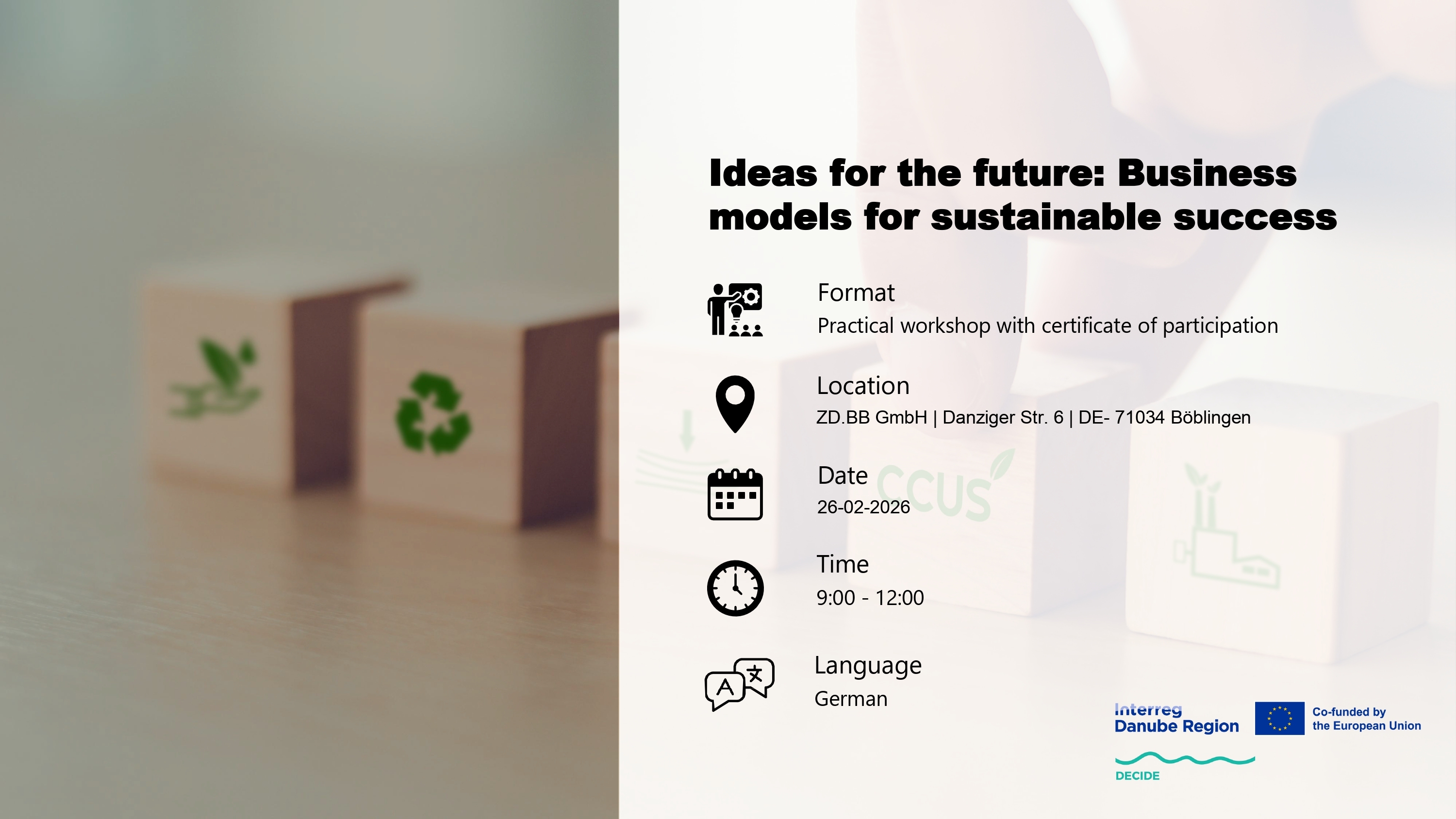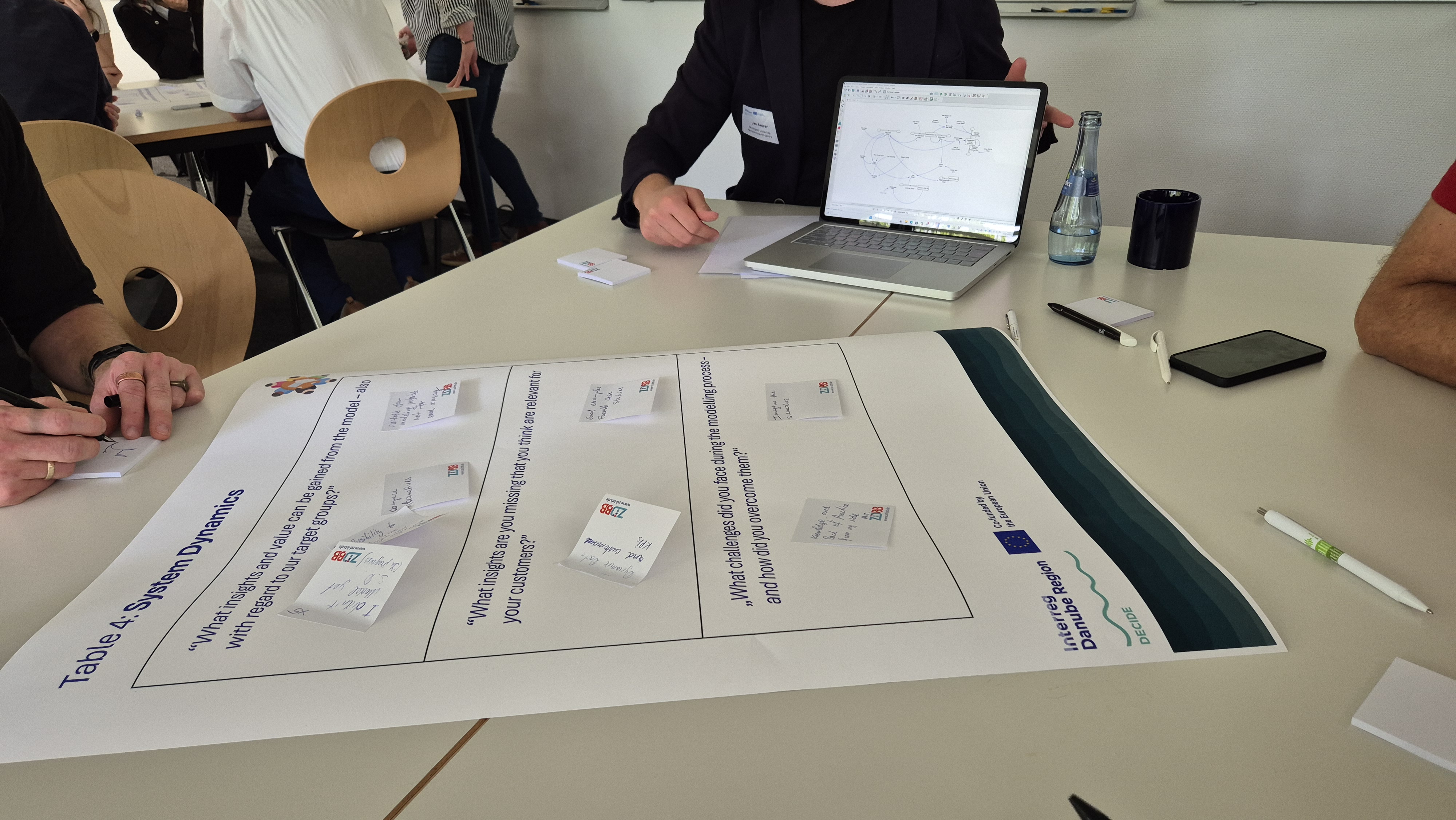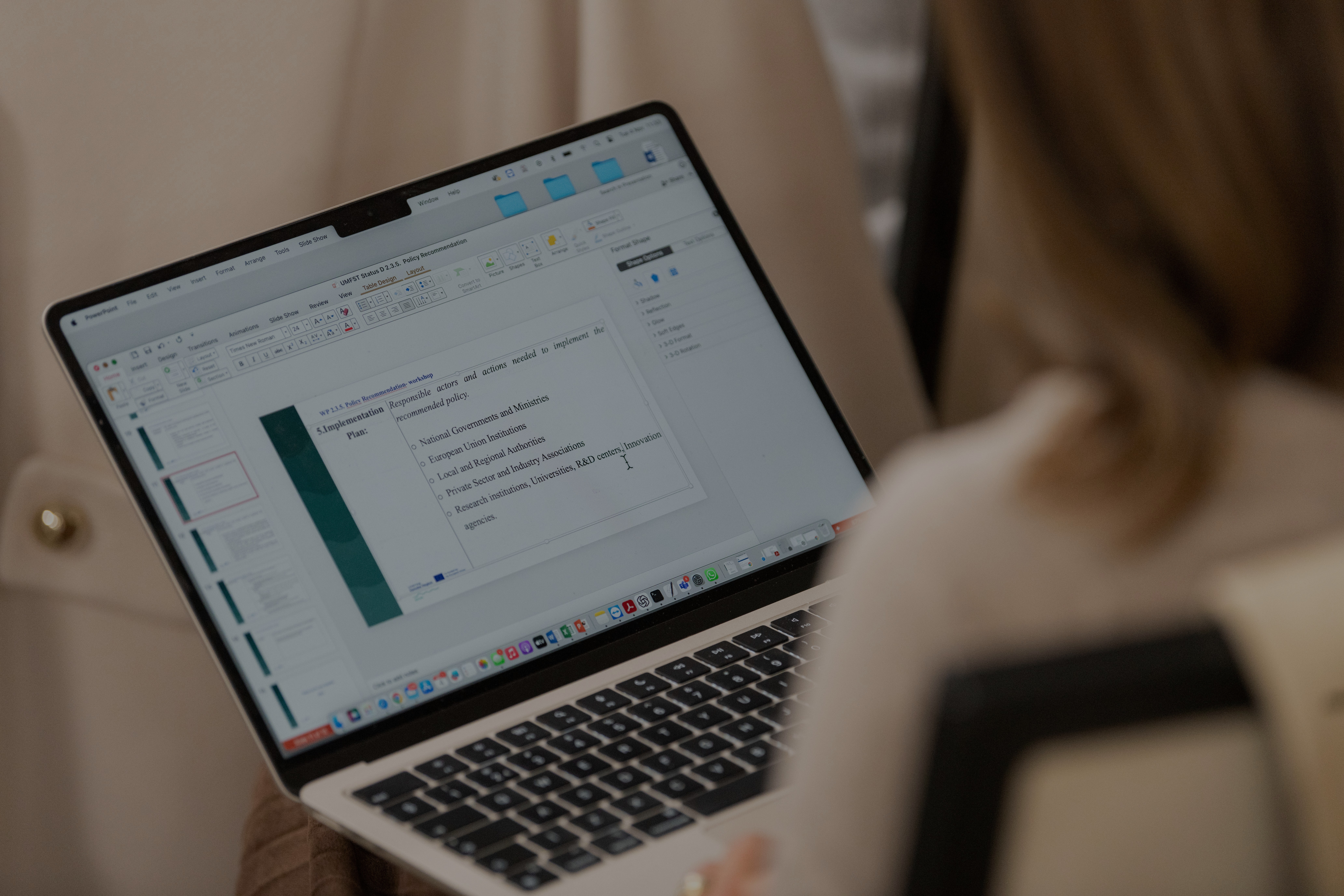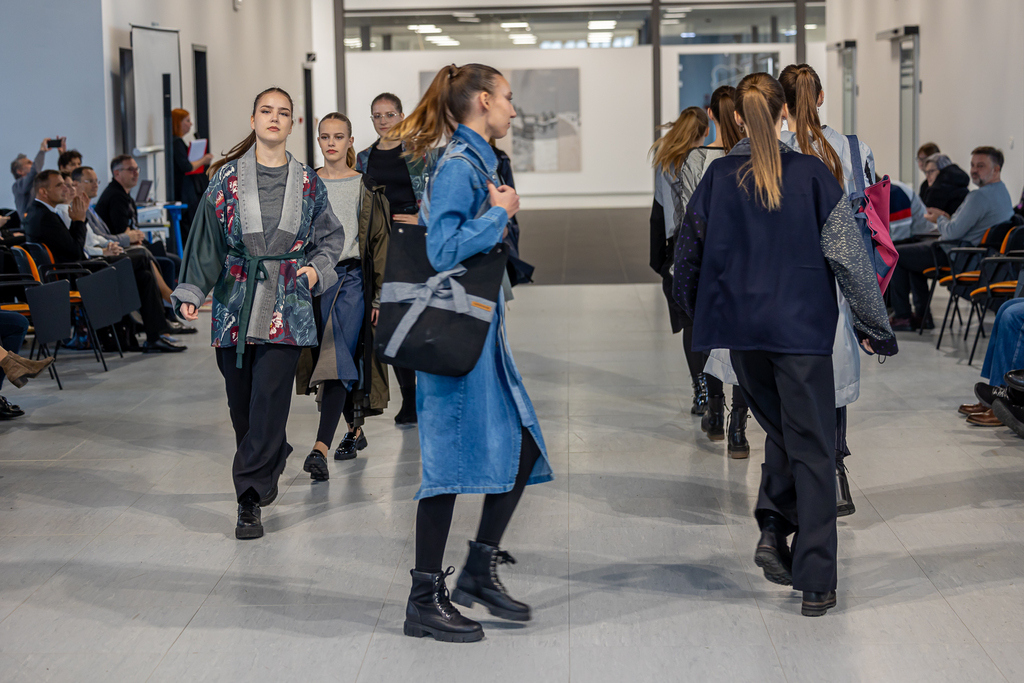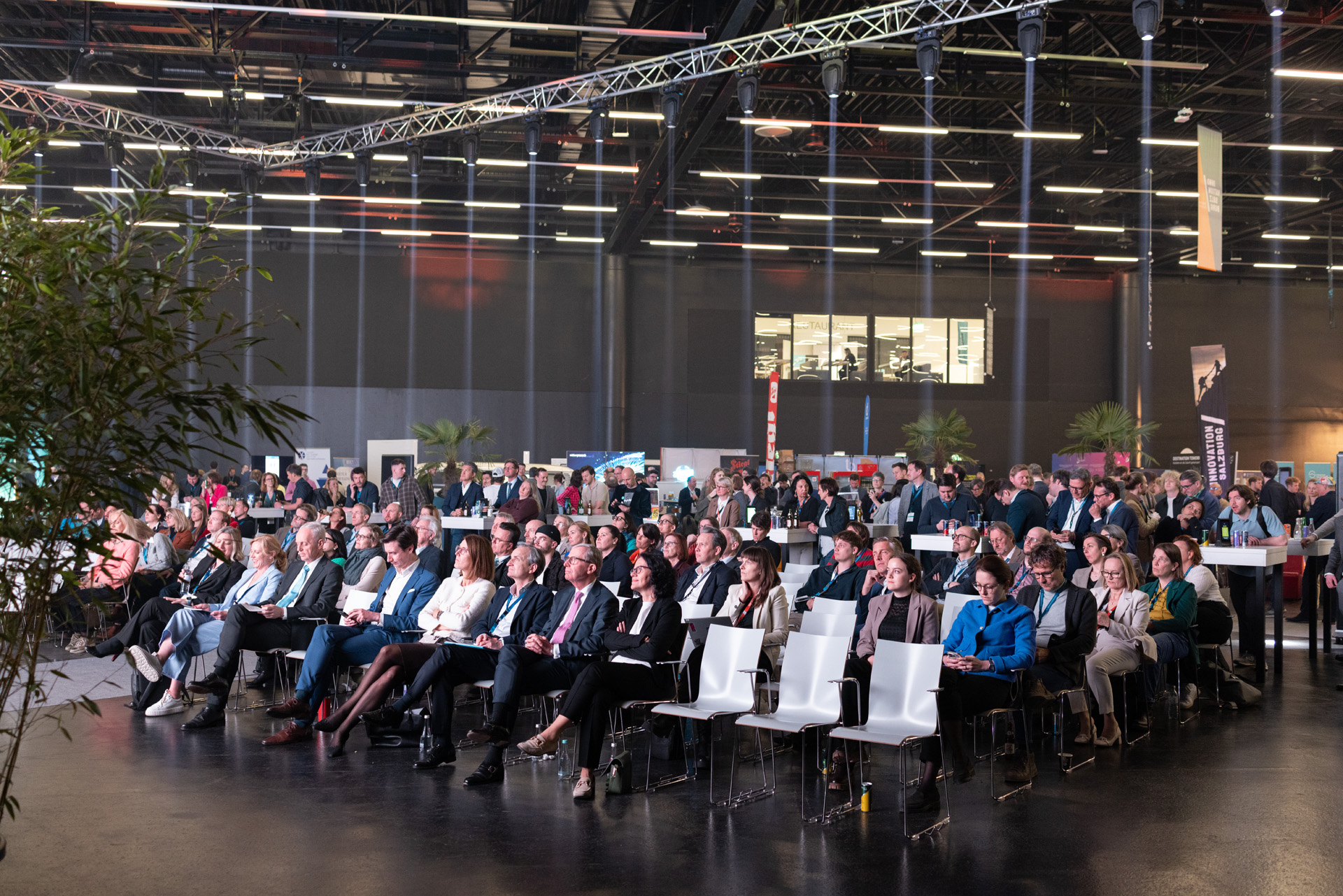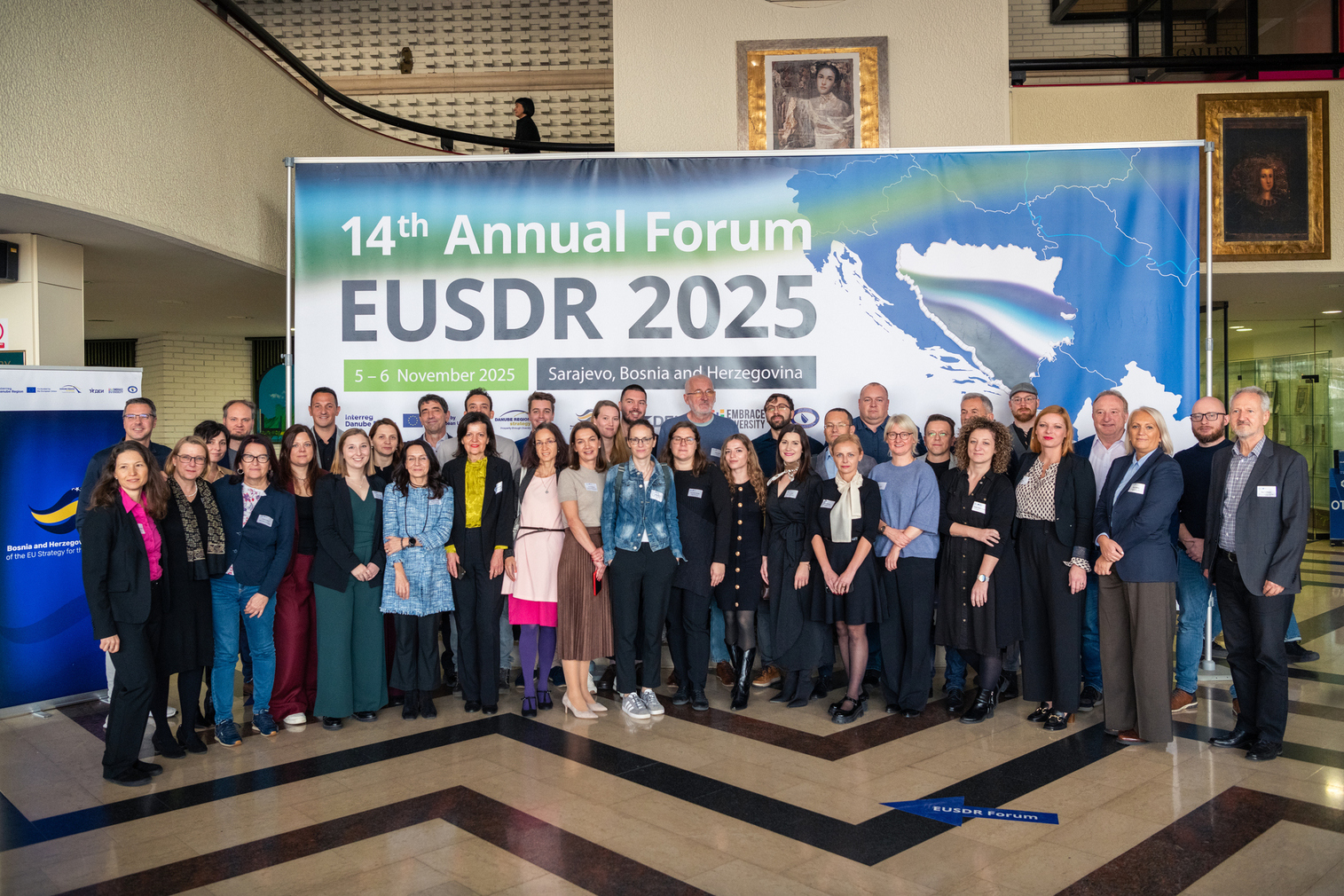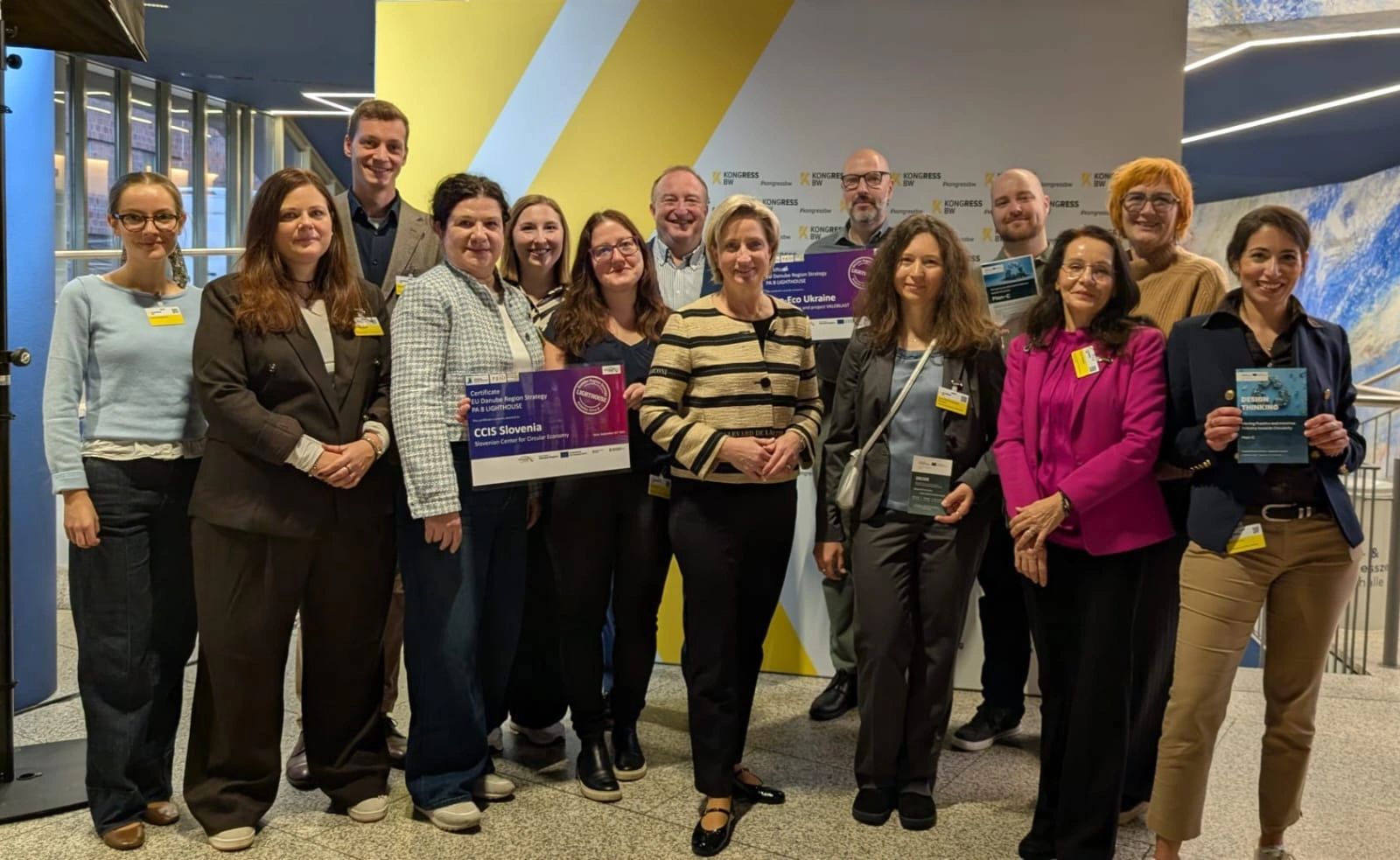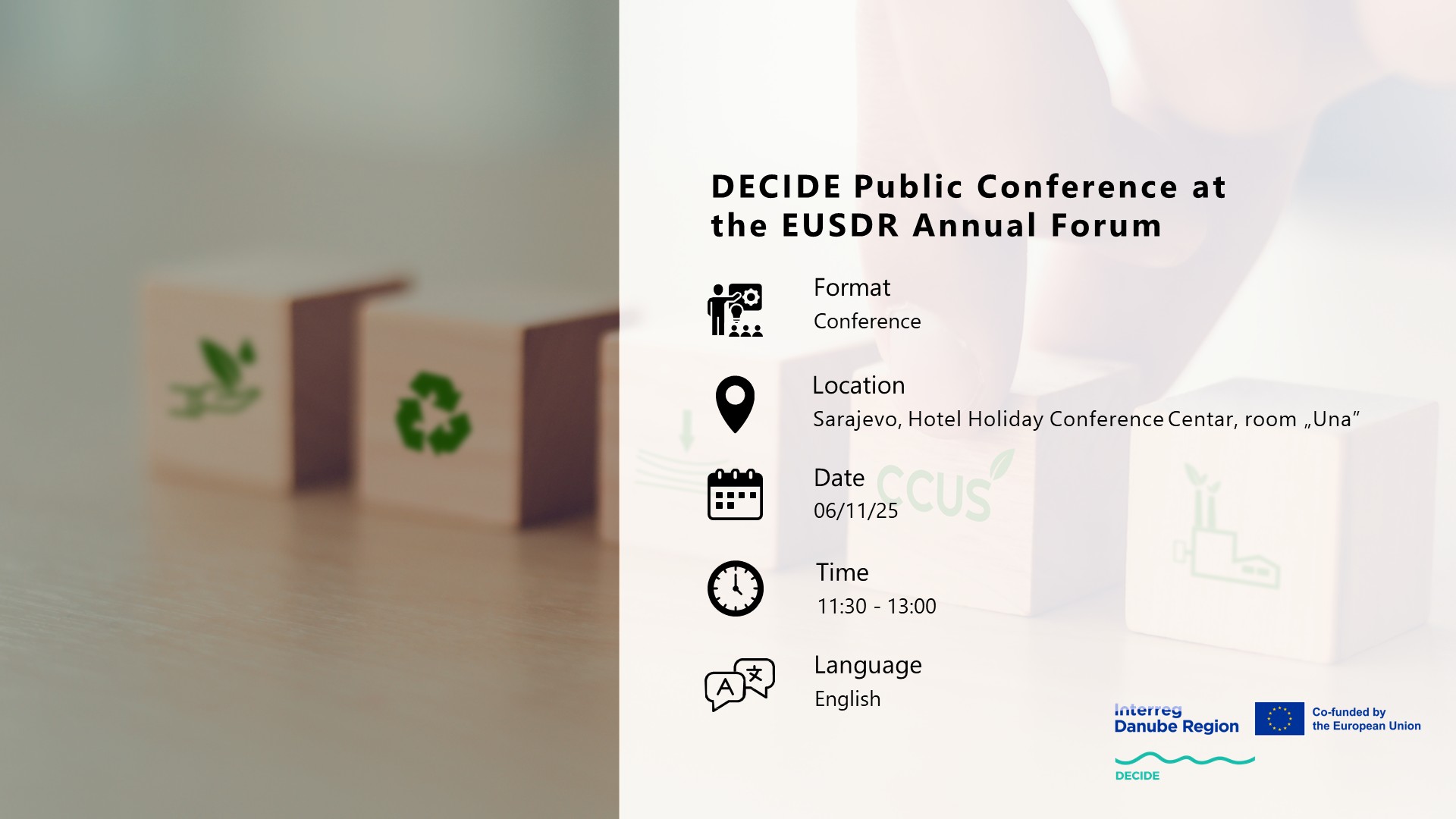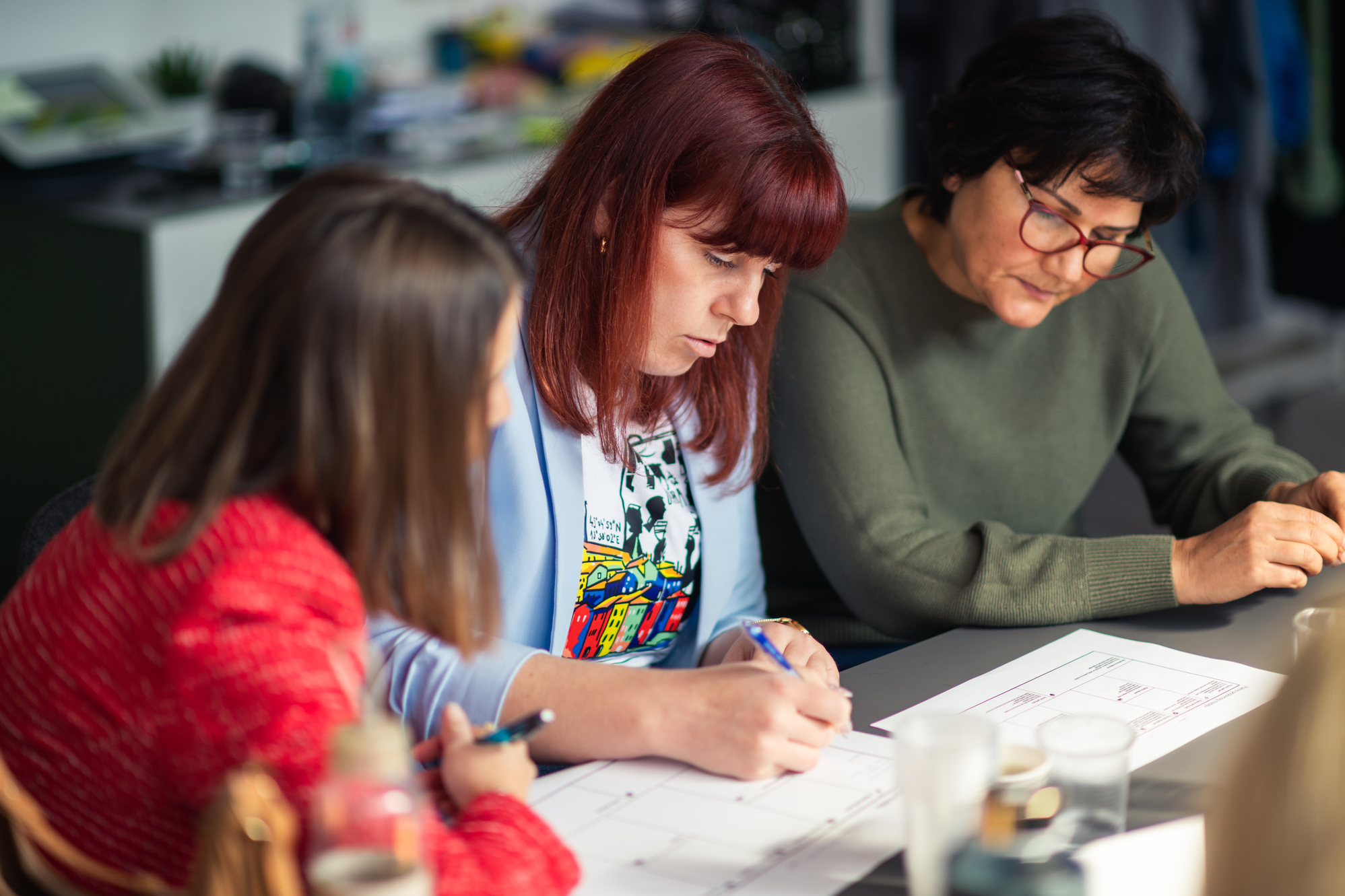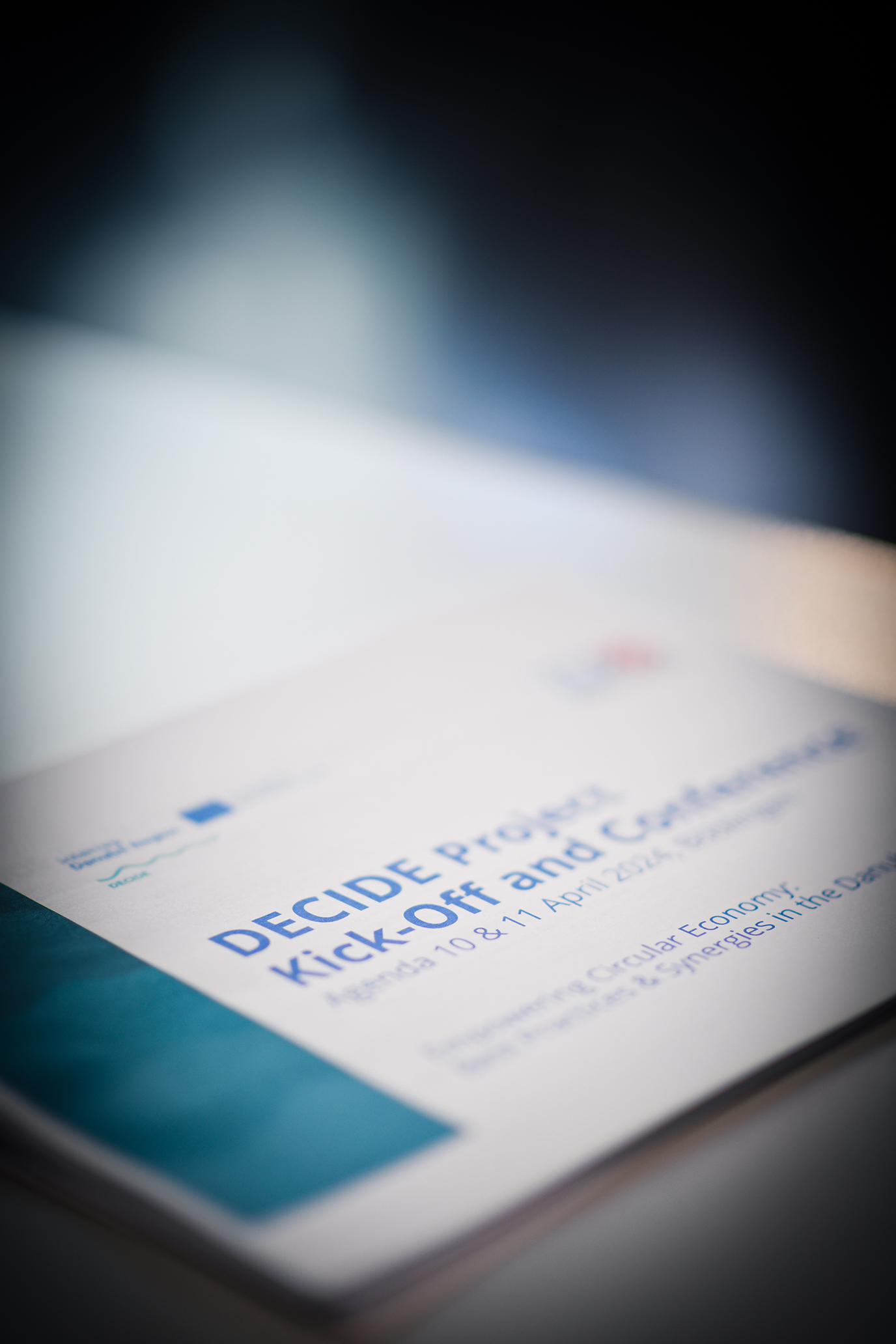
European project "DECIDE" focused on circular economy starts in Böblingen
European project "DECIDE" focused on circular economy starts in Böblingen
Centre for Digitisation in the Stuttgart Region (ZD.BB) is lead partner of the Danube Region project with 16 international partners
On Wednesday, 10 April, the kick-off event for the European project DECIDE ("Digital Services for the Circular Economy") took place at the Centre for Digitisation in the Stuttgart Region (ZD.BB). The Danube region project with 16 international partners from ten countries along the Danube is intended to help make the European economy greener and more digital by mid-2026. To this end, DECIDE aims to provide small and medium-sized enterprises (SMEs), start-ups and business developers in the Danube Region with methods and tools for developing successful business models for the circular economy. These models are crucial for achieving the goals of the European Green Deal by making sustainable products the norm, finding ways to transform resource-intensive sectors and making the circular economy usable in practice. "Our goal with the DECIDE project is to unite the two seemingly opposing poles of ecology and economy in promising business models," said ZD.BB Managing Director Dr. Claus Hoffmann, explaining his team's motivation during the welcome speech.
Johannes Jung, Head of Strategy, Business Law, Foreign Trade and Europe at the Baden-Württemberg Ministry of Economic Affairs, Labour and Tourism, was delighted that four partners from Baden-Württemberg are participating in the EU project: in addition to ZD.BB and Reutlingen University with the Herman Hollerith Centre, the district of Böblingen and the Baden-Württemberg Foundation are also represented in the DECIDE project. "It is important that Baden-Württemberg participates in such programmes, as they help to promote cross-border cooperation, drive innovation and strengthen the business location internationally," emphasised Jung.
Prof. Dr. Dieter Hertweck, Herman Hollerith Centre at Reutlingen University, then explained how to successfully develop business models for the circular economy in the Danube region. Finally, the project partners discussed best practice examples of the circular economy in the Danube region in a panel discussion.
Background
The Danube Region Interreg programme was created to achieve the objectives of the Danube Region Strategy. With a budget of around 224 million euros (in the current funding period 2021 to 2027) from the European Regional Development Fund (ERDF), the initiative promotes concrete cooperation between the Danube regions with its projects. The funding priorities for the coming years are clearly defined. The aim is to promote research and innovation, expand renewable energies, improve social inclusion and strengthen governance for cooperation in the Danube region. So far, 60 projects have been approved and will receive funding totalling over 114.4 million euros.
The DECIDE project – "Strengthening the Circular Economy: Best Practices and Synergies in the Danube Region" – will be funded with almost three million euros until mid-2026. During this period, 16 partners from Germany, Austria, Hungary, Romania, Bulgaria, Croatia, Slovenia, Serbia, Bosnia and Herzegovina and Moldova will work on innovative solutions for the green transformation in the Danube Region.
ZD.BB is the central advice centre for companies and start-ups from the Böblingen district and the Stuttgart region on all aspects of digitalisation. ZD.BB supports small and medium-sized companies in mastering the digital transformation. This includes the development of digital business models for all sectors, the qualification of skilled workers and the promotion of a digital corporate culture. As a regional digital hub, ZD.BB is supported by the Baden-Württemberg Ministry of Economic Affairs, Labour and Tourism.
Back to homepage
DECIDE project kick-off event video
Kick-off event video
News & Events
Read the most recent updates and explore the upcoming events.

